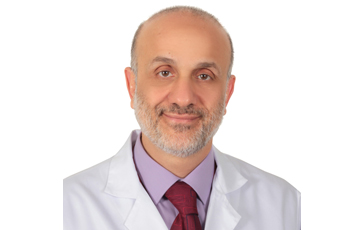Sharjah, 12 September 2015
After recently screening 1,000 newborn babies for hearing loss, University Hospital Sharjah (UHS) found that 16 had hearing problems, and was able to provide the treatment to help them get their hearing back in time.
 “Universal Newborn Screening is necessary as it catches any hearing defects early,” said Prof. Hakam Yaseen, UHS Medical Director and Head of the Neonatal Intensive Care Unit. Hearing loss is one of the most common birth defect in the UAE, with an incidence of between two to four per 1,000 births.
“Universal Newborn Screening is necessary as it catches any hearing defects early,” said Prof. Hakam Yaseen, UHS Medical Director and Head of the Neonatal Intensive Care Unit. Hearing loss is one of the most common birth defect in the UAE, with an incidence of between two to four per 1,000 births.
UHS recently inaugurated a new hearing aid clinic that is now part of the existing Audiology Unit. The hospital has expanded its various facilities to meet the needs of the growing number of patients in Sharjah and the Northern Emirates. With the number of babies being born premature rising, a greater number of newborns with hearing defects are expected.
“Prematurity or low birth rate (below 1500 gms at birth) is a major risk factor contributing to hearing defects. Studies show that hearing and optic problems reach 25 percent of preterm babies – those that are born earlier than the 25-weeks’ gestation time,” Prof. Hakam continued.
Hearing loss can also result from hereditary factors, or occur if the mother gets infected during pregnancy with German Measles or an infection by a parasite called Toxoplasma gondii, which can spread to the baby and cause serious complications.
Drugs administered to newborns such as Gentamicin (for the treatment of various bacterial infections) may also cause hearing loss. UHS is following international recommendations that Universal Newborn Screening be undertaken for all babies. This method identifies hearing-impaired newborns with or without risk factors.
A second type of screening, Risk-based Screening, only focuses on high-risk infants, or those with certain risk factors that may lead to hearing loss. Early intervention for newborns at UHS includes such treatments as a cochlear implant that replaces the function of the damaged inner ear and helps the baby hear, devices such as hearing aids, and speech therapy with spoken and sign language support.
The earlier the defect is detected the better, because the brain’s ability to learn language (spoken or sign) is reduced as the child becomes older. “Children born with permanent congenital hearing loss have historically performed worse educationally, and had poorer language acquisition, social functioning and vocational choices than their hearing peers,” Prof. Hakam added.

